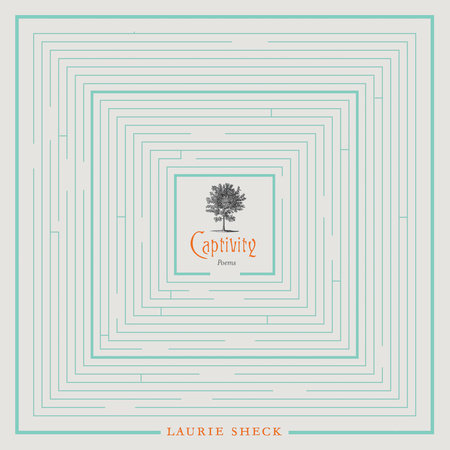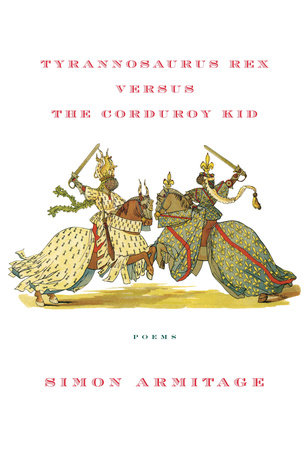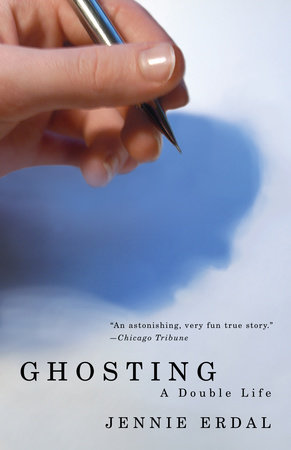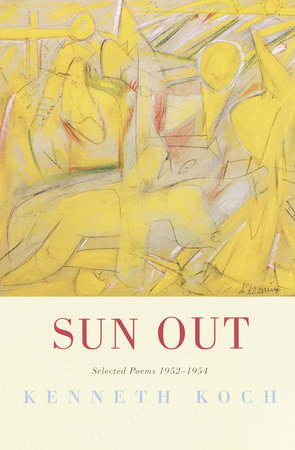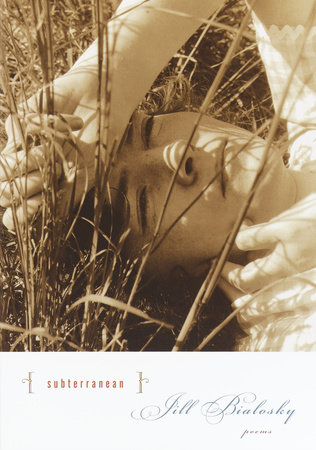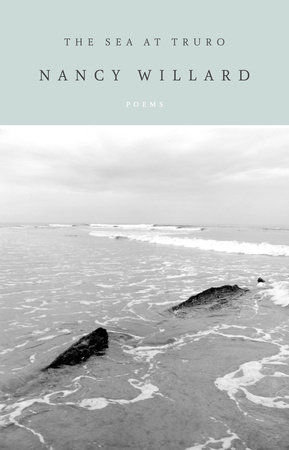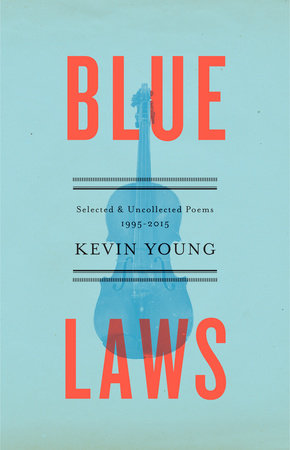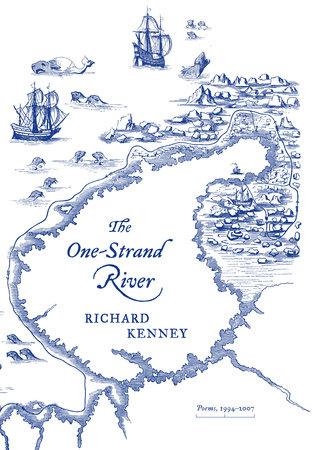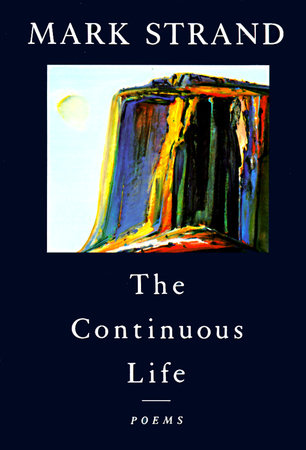A Conversation with
Jane Mayhall
author of Sleeping Late on Judgment Day
Q. What was it like to grow up in Kentucky in the earlier part of the century? Did you read poetry as a girl? When did you start writing poetry?
A. My mother didn’t have me until sixteen years after my brother was born. She told me the only reason she had me was to have someone to talk to. So we had deep philosophical conversations. My mother and father had bought a piano and my brother took music lessons, played Rachmaninoff when I was one or two. It set me afire. That was like the experience of poetry.
The main thing for me I think was my father’s reading to me from the Harvard Classics that he bought from a door-to-door salesman when I was a girl. None of the other neighbors bought it, but my father got, for example, Crime and Punishment. I didn’t approve of the story at all, but I appreciated that it had some quality of know-how.
Mother and Father also had glorious voices. I was surrounded by their music and I would listen to my mother and aunt talk about their great-grandparents coming over during the potato famine and spending time in Indian Territory. The rhythm of their speech–I wish I could remember it.
Nobody told me I was a writer; I just wrote. Writing poetry was a part of my experience in junior high school. My 6th grade teacher, who was a big brash intellect, read Emerson to us. And in my neighborhood, old barns were turned into studios where plays were put on. People wrote them and you paid two or three cents to get in. Mother took me. That, too, was like the experience of poetry.
Q. When and how did you continue your education and meet your husband Leslie George Katz, whom you address in your love poems?
A. I attended Black Mountain College in North Carolina. In high school, having read Dostoyevsky, I wrote lots of searing self-destructive stuff. The principal wanted me to see a psychiatrist. I said, “Don’t be silly, I’m writing stories.” I won a national short story contest for a take-off on Hawthorne, and my prize was a scholarship to Rollins College. But someone showed my story to the Black Mountain lit. teacher, Robert Wunch, who first published Zora Neale Hurston, and he persuaded me to go to Black Mountain and got me a scholarship there.
That’s where I met Leslie Katz, who became my husband; he was part of Baltimore society and his father was a dear friend of H.L. Mencken and a collector of American painters like Thomas Eakins and John Singer Sargent. My mother, who was uneducated, felt she didn’t know how to die properly and was worried about who would take care of me. We got married in part to reassure her that I would be cared for.
Shortly after our marriage, in 1940, Leslie’s mother called us and said, “Why didn’t you tell me you were getting married?” and I said, “I didn’t think you’d be interested.” My mother laughed at me and said that was so Southern, by which she meant so evasive.
Q. Can you talk a bit more about your life with Leslie? You were together for sixty years and you evoke in your poems the bohemian New York that you inhabited together.
A. I was an oddity and Leslie was an oddity. We were both probably neurotic. When Freud’s assistant came to lecture at Black Mountain, Leslie and I went out to get a hamburger instead! We did not approve of psychology and we disliked the classes in poetry. We felt like companions immediately. We thought we wouldn’t have much time together before he had to go off to be a soldier but actually he didn’t go, because he got injured. He was viewed as an oddity by the other soldiers because he did not approve of war, and I suppose he didn’t pretend about it. One of the other soldiers hurt him on purpose with a machine gun and he was discharged honorably, and that’s when we went to New York together, in the early forties.
We went straight to Brooklyn Heights where we lived near Arthur Miller and his wife. I remember I was amazed that such a conventional-seeming man could write such an important play. We lived in a one-room apartment and we washed the dishes in the bathtub. There was no kitchen, just a faucet and the bathtub, and we didn’t mind at all. It seemed like a lark. It was in those days that we met James Agee and the poet Jean Garrigue.
Q. Leslie Katz started the Eakins Press, one of the premier photography presses in the country. How did that come about?
A. Leslie was interested in so many things. He had studied drama at Black Mountain and in Brooklyn he got involved with a group that was trying to educate poor children, and Leslie directed these teenagers in plays–in Greek plays and Oscar Wilde. The Eakins Press began with a replica of Whitman’s 1855 edition of Leaves of Grass for which Whitman had set some of the type himself; it was a big beautiful object. Leslie had worked for a printer and had taught himself handprinting. He did nothing that was not a pleasure to him. He also wrote speeches for Adlai Stevenson during his campaign against Eisenhower. Of course Stevenson didn’t have a chance–he too was an oddity–but Leslie wrote speeches for him about his ideas of American culture at the time. The second book that he published at Eakins Press was a book of photographs by Walker Evans, Message from the Interior, in 1966. It was an unusual idea at the time to publish large prints in an album the way he did, not just a small book.
Q. You write beautifully about your marriage in poems such as “Species Talk,” where you say you and Leslie were “separate partners,” and that your union had “the grace of infidelities, myriad moods.” What were your ideas about marriage back then?
A. Well, we believed in separation. That is, we believed that the marriage would be more sincere if we didn’t have to live together, so we were always seeking ways to go the other way and yet we always came back together. It was not written down in ones and twos and threes but it was understood that if we each had a little extra apartment where we were fulfilling our projects, this gave us a greater appetite for each other’s company.
One of my favorite illustrations of our being apart and coming together was the friendship that Leslie had with the photographer Berenice Abbott. When they met, they just flipped for each other; it was a great almost spiritual marriage and I was aware of it, but I felt very religiously that he should go his own way with her, and it didn’t enter my mind to intrude on their privacy. Ultimately Leslie invited her to come over for lunch, to take a picture of me for a magazine, and then Berenice and I became very close. Leslie and I took care of her together when she suffered from emphysema.
Over the years Leslie and I were always protective of each other’s eccentricities. Our exchange of ideas was the essence of our life together.
Q. You picked a Polaroid by Walker Evans for your jacket, a picture of a letter box. Can you tell us a bit about your relationship with him during his life? Can you say anything about the significance to you of the letter box image, or of Evans’ Polaroid work?
A. I was very smitten with Walker Evans’ work before we even knew he existed in New York. Then Leslie and I met him at New Year’s Eve party, in the sixties. Leslie and I stayed close to him and supported him in his difficulties when he was going to the hospital as a result, really, of his drinking himself to death. He started working with the Polaroid at the end of his life and even though he changed his method–and though he always had the spice of fame, after Let Us Now Praise Famous Men, which he did with Agee–he did not put aside his sincerity. I love his Polaroids because their vivid color is the color of memory.
Also, I remember Conrad Aiken, whom we met later and became good friends with, said that he had had a constant dream that he would find God in a mailbox, that he would go to the mailbox and there would be God, where he always knew he would be. And this idea had some poetic validity for me. Walker, in his work, had that same kind of wild validity.
Q. In one poem you describe a game of tennis with Theodore Roethke at Yaddo. Do you remember what year that was, and what was the significance of that community to you?
A. I don’t remember what year that was but I have a confession to make. Theodore Roethke was there. He sat drinking all the time, and he was a magnificent person–magnificent looking, magnificent acting. I asked him to play tennis because I thought it would be good for him to get out into the sunshine. He said he didn’t want to play. Philip Roth was there too and he said, “The court isn’t very good but if you want to play, I will,” and it was he who played tennis with me, just the way I wrote about it. He was a perfect gentleman and a very good writer but for the sake of the poem I switched characters — it’s a case of poetic license.
Yaddo was a pocket of brotherhood, like the artistic community in New York could be in those days too. It was an instance of the way my life was blessed. I wasn’t being told what to do or what to think. Life was allowed.
Q. You mention in one poem the “individual lamps conferred on the world’s dark” for which you are grateful. Who are the poets, photographers, artists who have inspired you?
A. The librarian in my junior high school introduced me to many writers who had a big effect on me, like Sherwood Anderson, and Hemingway, though I didn’t like his subjects, and the Russians. I also read William Butler Yeats, but he was too corny for me. Auden had a profound effect. He showed me how you could shift intellectual ideas into passionate feelings. William Carlos Williams had a big impact on me too, but he didn’t quite satisfy me emotionally. There was a superiority to his honesty sometimes. I loved Stephen Crane–he wrote wonderfully about the hypocrisy of good people.
Q. In “Kirstein’s Table,” you describe a dinner party at Lincoln Kirstein’s, where, over wonton soup, the conversation was “free of duplicity and intellectual browbeat.” You quote Kirstein’s allusion to Don Quixote: “truths are more beneficial than extravagances.” Do you agree with this statement?
A. I’m not sure that Kirstein wasn’t obscuring in his marvelous sophisticated way another kind of extravagance. He had the extravagance of his simplicity, and of his genius, and his ability to be in two places at once. He could jump into a cab and go to the Metropolitan Museum and appear for a news conference and he could cook dinner, all in the very same hour. That was extravagance.
In my own poetry, I think that fact and plainness are my safe subjects.
Q. How do you explain the way you’ve come to write such powerful poems in this stage of your life? What opened up this new phase of work for you?
A. I suppose it was the fact that Leslie died. And I began talking to Leslie in poems as I would have actually talked to him about something, and I could call him a part of the ocean and a part of the sky, the stars, and the floods–we would have seen this as a part of our life together when he was alive. Leslie and I used to lie in the grass together, and I really wanted to write about that in the way that he would have seen it. I mean, the way he did see it. He also said some really marvelous things to me when he was close to death. They were truthful things, but his sophistication was profound. He expressed the fact that God is beyond understanding. And this touched a vein–it was a concept I wanted to express. And also: poetry is a method of bringing him back.






